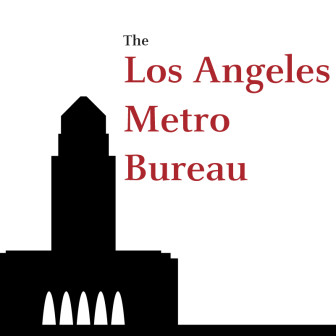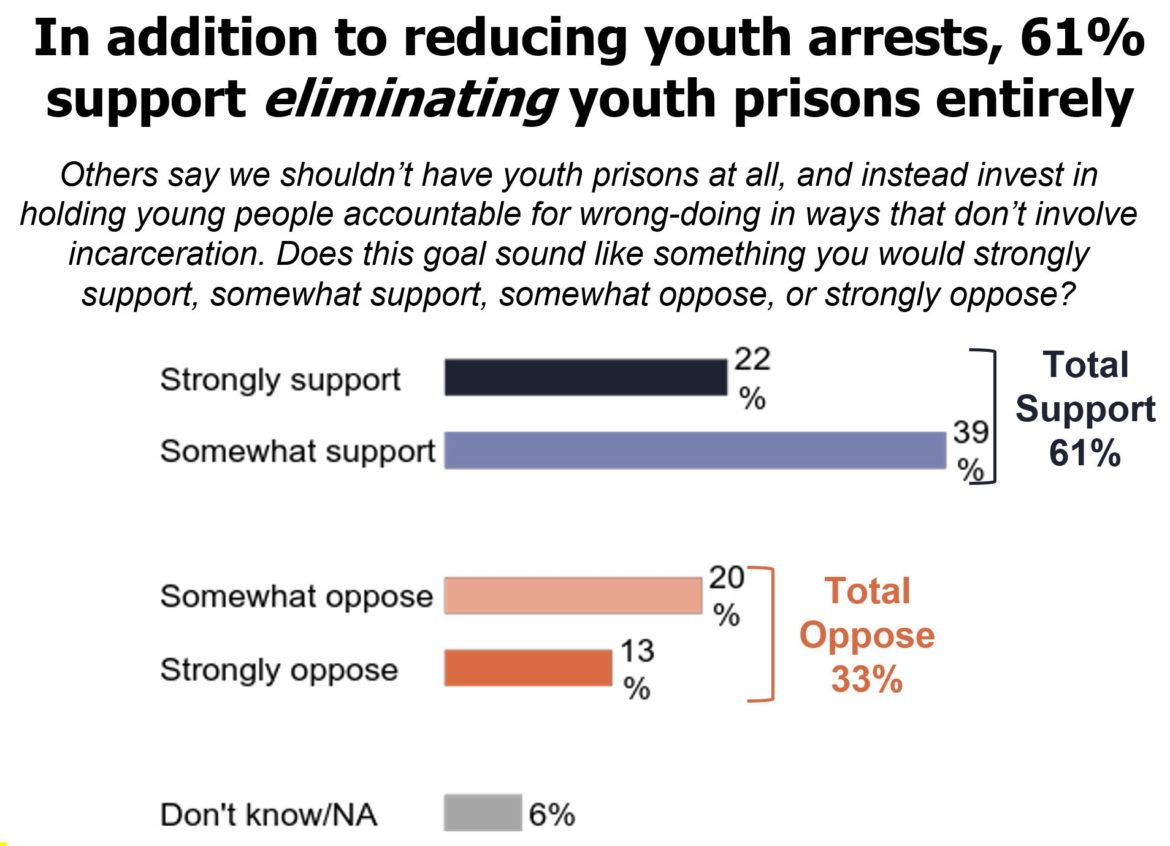LOS ANGELES — California’s juvenile prisons have long had a poor reputation as mere stops on the way to grown-up prisons, overcrowded places where reform or rehabilitation were rarely achieved.
That bad rep might help explain why most Californians voice some support for closing youth prisons, according to a recent survey commissioned by the California Endowment, a private health foundation.
 A majority of respondents want to close juvenile corrections facilities on those terms, with 22 percent voicing strong support and 39 percent saying they “somewhat support” closures. Only 13 percent were strongly opposed to the idea, while 20 percent remained “somewhat opposed.”
A majority of respondents want to close juvenile corrections facilities on those terms, with 22 percent voicing strong support and 39 percent saying they “somewhat support” closures. Only 13 percent were strongly opposed to the idea, while 20 percent remained “somewhat opposed.”
Instead of feeding teens into a system that exacerbates trauma and harm, we need to offer meaningful alternatives, Democratic Sen. Holly J. Mitchell said.
“We need to get frank about the overpolicing in certain communities and the perceptions that black and brown kids are more violent and less deserving, and how that impacts their lives,” she said. “In some cases, the pendulum has swung way too far, to where kids’ typical adolescent behaviors have been criminalized.”
Dr. Robert K. Ross, president and CEO of the California Endowment, a private health foundation that commissioned the survey, praised Californians in a statement for understanding “what the research clearly shows: incarcerating young people is a failed strategy that must be replaced with what works” by shifting “tax dollars from punishment to prevention.”
Between June 19 and 23, researchers conducted an online survey and collected responses from 1,042 California adults. The study, which set quotas for respondents to ensure a “representative, demographically balanced sample,” found little difference along lines of gender, age, ethnicity or political party. In a rare moment of bipartisan agreement: Sixty-seven percent of Democrats and 50 percent of Republicans voiced some support for closing youth prisons, with 47 percent of GOP respondents opposed and others declining response.
Across the board, more people supported closing juvenile prisons — to the tune of five to 10 percentage points — after hearing about their high costs, some of the reasons behind incarcerations and the racial disparities in the system.
California spends more than $1 billion a year on its youth prison system — one of the nation’s largest — and operates more than 125 state and county lockups, according to the Endowment’s report. Of the 6,000 young people currently locked up, about three-fourths have been found guilty of nonviolent offenses such as theft, vandalism or even running away from home.
About 80 percent of incarcerated youth are black or Latino, according to the report. By comparison, about 57 percent of California youth were black or Latino in 2016, according to the census.
That overrepresentation of youth of color in our juvenile prisons reflects the troubling racial disparity that is seen in the adult prison population, too — a disparity that experts increasingly believe is a result of persistent biases that are present in modern policing, and date back to slavery.
Legislators are troubled by those parallels, and the way adolescents are facing adult consequences for what too-often amounts to childhood indiscretions.
A recent study from experts at the Georgetown Law Center on Poverty and Inequality found that the problem of biases in perceptions are particularly pronounced for black girls, who are viewed by adults as “less innocent and more adult-like than their white peers” when they are 5 to 14 years old. The researchers found that this characterization “may contribute to more punitive exercise of discretion by those in positions of authority, greater use of force, and harsher penalties.
Mitchell and Sen. Ricardo Lara, a Democrat, filed a package of bills this past spring that intend to divert children from landing in juvenile detention facilities, including a provision that would bar kids under the age of 12 from being sent to juvenile prisons, and a mandate that anyone under age 18 speak to an attorney before waiving his or her rights in police interviews. Another bill in the package makes California law reflect the U.S. Supreme Court’s ruling in Miller v. Alabama and bars minors from being sentenced to life without parole.
Although that last bill is rooted in a precedent set by the highest court in the U.S., Mitchell says, like most criminal justice proposals, her legislation faces an uphill battle with advocates for law enforcement and district attorneys in Sacramento. One of the bills in the package has been signed into law; the others are still in the mix.
Mitchell and Lara also want to crack down on what’s called a debt trap in the juvenile justice system — court and detention fees. The Juvenile Law Center, a public interest law firm, says that too often, a family’s inability to pay these fees can push the child deeper into the system. “Racially disproportionate treatment in the system leaves people of color with significantly more criminal justice debt, including burdensome administrative fees,” according to a University of California at Berkeley study.
In California, juvenile corrections have faced reform efforts for years. In 2003, advocates brought a lawsuit (Farrell v. Cate) alleging unsafe overcrowding and the rise of gangs and violence within facilities, among other problems. A consent decree was issued in late 2004 to require state juvenile corrections officials to improve safety, staff training and access to mental health, education and religious services. In 2007, Gov. Arnold Schwarzenegger signed reform legislation that barred low-level offenders from being committed to the state system and offered county probation systems more funding to keep more offenders local.
In the years since, Gov. Jerry Brown has called for California to become the first state to entirely eliminate state-run prisons for juvenile offenders. After years of closures, the state currently operates three youth prisons.
The California Endowment funds coverage in California for Youth Today and the Juvenile Justice Information Exchange.
This story has been updated.
Hello. We have a small favor to ask. Advertising revenues across the media are falling fast. You can see why we need to ask for your help. Our independent journalism on the juvenile justice system takes a lot of time, money and hard work to produce. But we believe it’s crucial — and we think you agree.
If everyone who reads our reporting helps to pay for it, our future would be much more secure. Every bit helps.
Thanks for listening.

Thank you for your help and hard work.